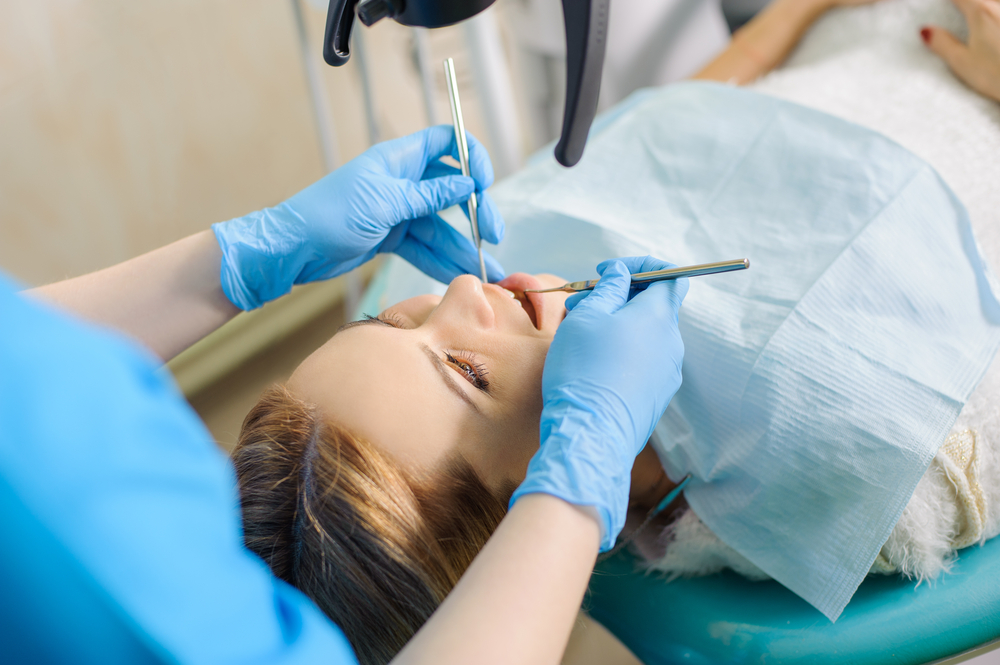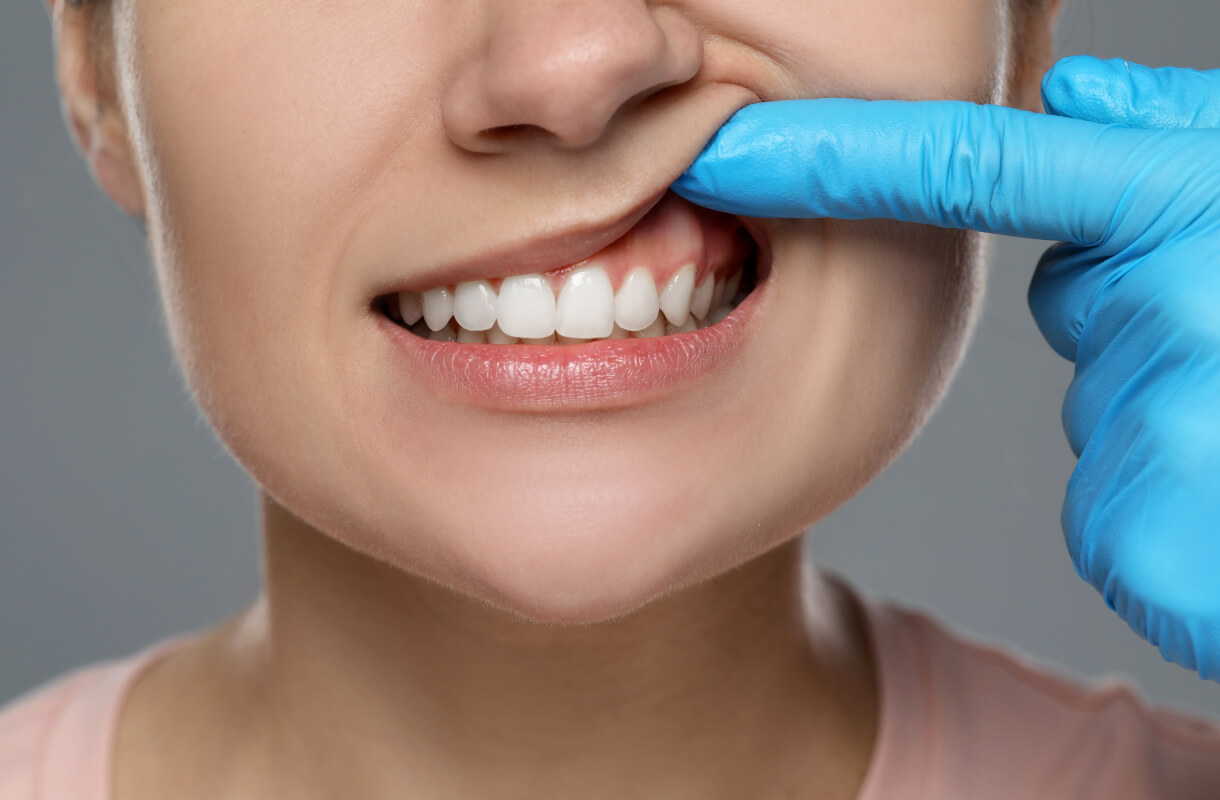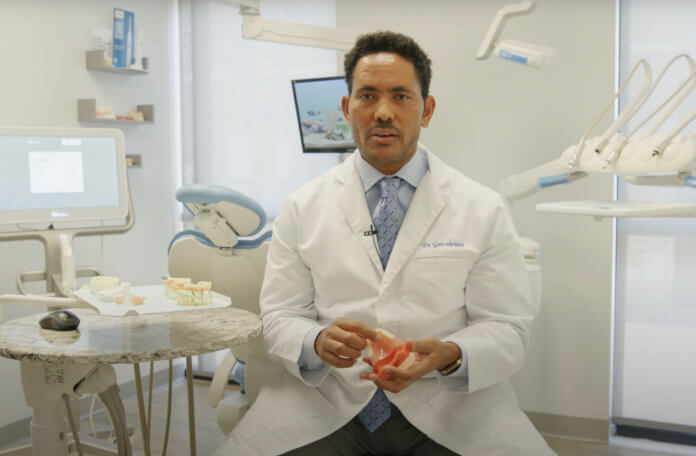Restore Your Dental Health and Beautiful Smile
At Trusted Dental Care in Wylie, TX, we prioritize the health and well-being of your smile. For patients who haven’t had a professional cleaning in a long time or suffer from significant plaque and tartar buildup, a gross debridement cleaning can be the first step toward achieving optimal oral health. This type of cleaning is often the key to preparing your teeth and gums for more detailed dental cleanings and examinations.
To schedule an appointment with our dentist in Wylie, contact Trusted Dental Care at (214) 702-0446.

What Is a Gross Debridement Cleaning?
A gross debridement cleaning is a more intensive type of dental cleaning compared to routine cleanings (prophylaxis). It’s designed to remove substantial plaque, tartar (calculus), and other debris from the teeth and gums. This cleaning is usually necessary for patients who haven’t visited the dentist in a while or who have advanced buildup that obstructs proper oral exams and basic cleanings.
Gross debridement cleanings help make the teeth and gums more accessible for a thorough examination, as they clear away hard deposits that can hide underlying oral health issues such as cavities or gum disease.
Debridement cleanings aren’t a substitute for regular dental cleanings. It’s typically the first step in treating severe periodontal disease or when a patient has neglected their dental hygiene for a long period.
Benefits of Gross Debridement Cleanings
There are several benefits to gross debridement cleanings, including:
- Removes plaque and tartar buildup above and below the gum line
- Helps prevent gum disease and tooth decay
- Promotes healthy gums and teeth
- Reduces inflammation
- Prevents infection and promotes healing
- Improves overall oral health and hygiene
- Helps maintain a bright and healthy smile

Who Needs a Gross Debridement Cleaning?
Gross debridement cleanings are recommended for patients who have:
- Skipped regular dental check-ups: If you haven’t had a dental cleaning in over a year, a gross debridement may be needed to remove the extensive tartar buildup.
- Moderate to severe plaque and tartar accumulation: When plaque isn’t regularly removed, it hardens into tartar, making it difficult to clean with normal brushing and flossing.
- Signs of early gum disease: If your gums are inflamed or bleed easily, it may indicate the presence of gum disease, which can be exacerbated by plaque and tartar buildup.
- Difficulty with regular cleanings: When plaque is too thick, regular cleanings may not be effective enough, and gross debridement will allow for better access to the surfaces of the teeth.
To schedule your mouth debridement procedure, contact our Wylie, TX, dentist today at (214) 702-0446.
The Full-Mouth Debridement Procedure
Full mouth debridement cleanings involve several steps to ensure thorough cleaning of your teeth and gums. The process typically takes between one to four hours to complete and involves the following:
- Initial Examination: Before starting the gross debridement cleaning, our dentist will perform a visual examination of your mouth to assess the level of plaque and tartar buildup. This helps the dentist understand the areas that need the most attention.
- Pre-Treatment Preparation: Local anesthetic or numbing gel may be applied to make the process more comfortable, especially if your gums are sensitive or if there’s a significant amount of buildup. We aim to ensure you feel comfortable and relaxed throughout the procedure.
- Scaling: The next step is scaling, which involves the removal of plaque and tartar buildup above and below the gum line using specialized tools.
- Root Planing: Once scaling is complete, your dentist will move on to root planing, which involves smoothing out the roots of your teeth to prevent further plaque buildup.
- Antibacterial Rinse: After scaling and root planing, your dentist will use an antibacterial rinse to remove any remaining bacteria and promote healing.
- Post-Debridement Examination: Once the gross debridement is complete, our dentist will check your teeth and gums for any signs of cavities, decay, or gum disease that may have been hidden beneath the buildup. This will allow for a more accurate diagnosis of your oral health needs.
- Follow-Up Care: In many cases, patients will need to return for a second cleaning, known as scaling and root planing, which targets any remaining buildup beneath the gum line. Our dentist may also schedule a routine cleaning after the gross debridement to ensure all surfaces are thoroughly cleaned and you can maintain optimal oral health.
Caring for Your Teeth After Your Debridement Cleaning
After you’ve had a debridement cleaning, you’ll want to care for your teeth and gums properly to promote healing and prevent future buildup. Here are some tips for caring for your teeth after a debridement cleaning:
- Gentle Brushing: Your gums might be sensitive after the cleaning. Use a soft-bristled toothbrush to gently brush your teeth twice a day. Ensure you are using fluoride toothpaste to protect against cavities.
- Floss Carefully: Floss once a day to remove food particles and plaque between teeth. Be gentle to avoid injuring the gums.
- Rinse With an Antimicrobial Mouthwash: Your dentist might recommend using an antimicrobial mouthwash to help reduce bacteria in the mouth. This can aid in healing and reduce the risk of infection.
- Avoid Harsh Foods: For the first day or two, avoid foods that are hard, crunchy, or spicy. These can irritate your gums or cause discomfort.
- Limit Sugary Foods and Beverages: Sugars feed the bacteria in your mouth, which produce acids that can erode enamel and cause cavities.
- Use Over-the-counter Pain Relievers: If you experience discomfort, consider taking an over-the-counter pain reliever as directed. Always consult with your dentist or doctor before starting any medication.
- Regular Dental Cleanings: To prevent the need for future debridement cleanings, schedule regular dental cleanings as recommended by your dentist. Typically, a cleaning every six months is suggested, but your dentist may have specific recommendations for you based on your oral health.
- Maintain a Good Oral Hygiene Routine: Establishing a consistent oral care routine, including brushing, flossing, and rinsing, will help prevent plaque and tartar buildup.
- Stay Hydrated: Drinking water helps in washing away food particles and bacteria and can also aid in preventing dry mouth, which can contribute to dental issues.
The Cost of a Gross Debridement Cleaning
On average, a gross debridement cleaning may cost $75 to $200. The cost will vary depending on the extent of the procedure, your dental insurance coverage, and the location of your dental practice. Check with your insurance provider to better understand your coverage and determine out-of-pocket expenses.

Frequently Asked Questions
While gross debridement cleaning may cause some discomfort, especially for those with sensitive gums or heavy buildup, local anesthesia or numbing gels can be used to minimize discomfort. Your dentist will ensure you are comfortable throughout the procedure.
Generally, the procedure can take anywhere from 30 minutes to an hour or more. The length of time for a gross debridement cleaning procedure can vary depending on the extent of the cleaning needed and the individual patient’s oral health.
Yes, in most cases, a follow-up cleaning is necessary to remove any remaining buildup beneath the gum line. Your dentist will advise you on the appropriate treatment plan after your initial cleaning.
Exceptional Dental Care with Dr. G
If you’re overdue for a dental cleaning or have noticed significant plaque and tartar buildup, schedule a gross debridement cleaning with Trusted Dental Care in Wylie, TX, today. Our dental team is here to help restore your oral health and provide you with the foundation for a lifetime of healthy smiles.
Our dentist is willing to help you get the dental care you need, schedule now at(214) 702-0446.